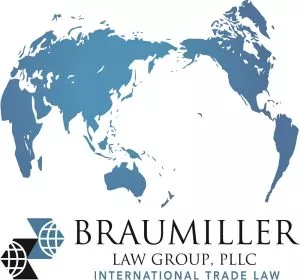INTRODUCTION
Digital assets, including blockchain and cryptocurrency protocols and companies, have been in a defensive posture for much of 2022, 2023 and 2024. The collapse of crypto exchange FTX and numerous enforcement actions taken by the Securities Exchange Commission (SEC) and Commodities Futures Trading Commission (CFTC) have forced the sector to retrench and upgrade their abilities to meet the higher standards of securities laws. The SEC was forced by the courts to approve spot Bitcoin Exchange Traded Funds (ETFs) in January. On May 22, The House passed a major piece of legislation, the Financial Innovation and Technology for the 21st Century (FIT21) bill to provide clear rules for the digital assets sector. In a surprise ruling, the SEC also approved spot Ethereum ETFs on May 23. This article examines the ETF approvals and FIT21 as steps towards providing a clear regulatory framework in the US that can help in developing legitimate business uses of digital assets technology.
Bitcoin and Ethereum ETFs
The SEC approved the sale of Bitcoin ETFs in January 2024 due to a court order in the Grayscale Investments case. The Bitcoin ETF approval was a major shift in the SEC position concerning the potential for market manipulation and a lack of investor protection posed by cryptocurrencies in general and Bitcoin in particular. Bringing crypto-based assets within the brokerage system that already exists is likely to improve market surveillance and enhance the ability to prevent fraud. This enhances the likelihood that digital assets, especially Bitcoin-based products, will become more widely accepted in financial markets. Nearly $10 billion in investments have flowed into Bitcoin ETFs since the approval.
In a surprise move on May 23, the SEC also approved the sale of spot Ethereum ETFs. The Ethereum ETF approval was announced in a 23-page decision that provided a justification based upon data collected and analyzed by the SEC concerning the ability of self-regulating organizations (SRO) to monitor the markets and sale of Ethereum based products. This development may well foster enhanced acceptance of digital assets traded through existing SROs, including the Chicago Mercantile Exchange, that can provide sufficient surveillance and reporting to protect investors and markets from the fraud that has plagued the cryptocurrency sector since its inception. The Ethereum ETF approval protects investors from fraud by allowing investors to gain exposure to crypto markets without having to directly utilize a wallet or interface with cryptocurrencies directly, limiting the chance for investors to lose money via hacking or fraud. This also gives the opportunity for traditional capital markets to benefit from crypto innovation, and paves the way for other ETFs for investors based on other cryptocurrency platforms, like Solana.
FIT21
The FIT21 bill attempts to establish a clear regulatory framework for digital assets. Proponents of the cryptocurrency industry have long pushed back against a perceived lack of clarity in how cryptocurrency assets are regulated by the SEC. The FIT21 bill attempts to provide a clear framework by dividing the authorities to regulate as follows:
The Commodity Futures Trading Commission (CFTC) must regulate a digital asset as a commodity if the blockchain, or digital ledger, on which it runs is functional and decentralized. The bill classifies a blockchain as decentralized if, among other requirements, no person has unilateral authority to control the blockchain or its usage, and no issuer or affiliated person has control of 20% or more of the digital asset or the voting power of the digital asset. In addition, the bill provides the CFTC with exclusive regulatory authority over cash or spot markets for digital commodities.
The Securities and Exchange Commission (SEC) must regulate a digital asset as a security if its associated blockchain is functional but not decentralized. However, the bill establishes certain exceptions to SEC regulation for digital assets that limit annual sales, restrict nonaccredited investor access, and satisfy disclosure and compliance requirements. The bill also sets forth requirements for primary and secondary market transactions. The CFTC and SEC must jointly issue rules to define terms and exempt dually registered exchanges from duplicative rules. (Bill Summary at https://www.congress.gov/bill/118th-congress/house-bill/4763/text?s=1&r=1&q=%7B%22search%22%3A%5B%22Financial+Innovation+and+Technology+for+the+21st+Century+Act.%22%5D%7D)
Proponents of the legislation in the industry and policy arenas endorse the regulatory clarity divided between the CFTC and SEC, substantial enhancement in consumer and investor protections, improved market stability, and the assumption that the US will assume leadership in global innovation, competition, and development of the digital assets sector.
Concerns have been expressed about regulatory gaps, potential for market instability due to the self-certification processes in the bill, diminishing protections due to the shift away from the Howey test for what constitutes a security, and exclusion of crypto trading platforms from the definition of exchanges. These concerns can be addressed in the Senate to strengthen the solid foundation the FIT21 bill is attempted to build to regulate digital assets.
Provisions in the bill that enhance the security of digital assets under the custody of exchanges or other intermediaries include:
- Separation of Assets: FIT21 mandates that customer-serving institutions such as exchanges must segregate customer funds from their own. This measure addresses one of the primary flaws in the FTX exchange and will also minimize losses due to hacking attempts.
- Security Protocols: The bill requires robust security measures to protect against hacking and to secure customer wallets and funds.
- Strengthened Operational Requirements for Security.
- Disclosure and Transparency: Institutions must provide detailed disclosures about the security measures they have in place and the risks associated with digital asset transactions.
- Oversight by CFTC and SEC: Both agencies will have clear rules to enforce security standards and take action for failure to protect customer assets adequately.
- Operational Independence: FIT21 ensures that exchanges and intermediaries prioritize the security of customer assets and adhere to best practices in cybersecurity.
Legislation and Regulation Goals
Issues that are not addressed in the legislation include:
- Utility tokens provide access to a product or service within a blockchain-based platform. These are generally not regarded as securities and are not likely to be traded on exchanges, so there may not be a need to clarify or define them. However, the agencies should have sufficient authority to provide regulatory guidance on their use.
- Regulations on NFT ownership or proof of authenticity could include provenance verification, intellectual property rights, and classification as securities. This potential failing could be addressed in the Senate review of the legislation.
- Stablecoin regulations on reserve management, disclosure practices, and treating some exchanges as banks could help improve transparency and efficiencies in capital markets. Tether makes limited daily disclosures due to settlement with CFTC. This sector is addressed by the legislation, but the Senate should clarify the parameters for stablecoin regulation to enhance stability in markets.
- DAOs work through smart contracts on a blockchain, enabling collective and automated decision-making. Regulations might register them as securities to address governance and liability issues. However, DAOs could also be regulated cooperatives or non-profit organizations if desired so that capital or other assets infusions are not securities. Because much of the trading can be done through DAOs, the Senate could enhance the scope of the bill to clarify the regulatory framework for digital assets organizations, especially DAOs. Otherwise, state authorities will provide regulatory frameworks, such as the Wyoming DAO laws and New York digital assets legislation.
Summary and Conclusions
The approval of ETFs for spot Bitcoin and Ethereum are important milestones in acceptance of the digital assets sector. The FIT21 legislation is a sensible and comprehensive attempt to bring more clarity, rigor, and security to the digital asset sector and improve access to cryptocurrency markets for investors who aren't already using cryptocurrency wallets. This can help protect investors by reducing incidences of fraud and hacks. It also moves access to crypto products substantially closer to the existing centralized system that is well trusted by most market participants. To capitalize on this momentum, the digital assets sector can utilize the now clear regulatory framework to help with integrating technology into daily life so that it can be used widely. Many average users find it overly complicated to use a wallet, use an exchange, use a cryptocurrency debit or credit card, or perform basic transactions easily. With the enhancement of security, custody of assets and oversight that the bill could bring into play, digital assets companies must comply to make the technology safe, simplify normal transactions for users, show why digital assets are superior to existing digital approaches to settlement and payments and show how blockchain records are superior to existing record keeping systems. Working with Congress, the regulatory agencies, responsible business organizations, consumer and investor watchdogs and other concerned players, this technology has the potential to become as ubiquitous and accepted as current debit card technology, but with a much wider reach and impact into the economy.
Check out our new Digital Magazine Get the inside scoop on the Braumiller Law Group & Braumiller Consulting Group "peeps." Expertise in International Trade Compliance.
The content of this article is intended to provide a general guide to the subject matter. Specialist advice should be sought about your specific circumstances.



